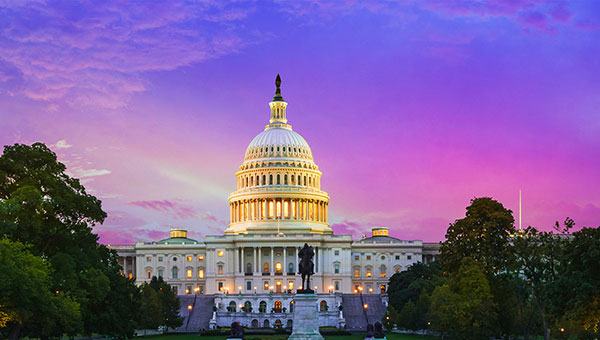The recent passage of the One Big Beautiful Bill Act (OBBBA) introduces important updates to the Qualified Opportunity Zone (QOZ) program—changes that could impact how real estate investors plan, invest, and exit projects. Whether you’re managing current QOZ investments or exploring new opportunities, understanding these updates is essential to maximizing tax benefits and maintaining compliance.
What Are Qualified Opportunity Zones?
QOZs are designated economically distressed areas created by the 2017 Tax Cuts and Jobs Act (TCJA) to encourage private investment and long-term economic growth. Investors can defer or reduce capital gains taxes by investing in these areas through Qualified Opportunity Funds (QOFs).
Previously, taxpayers could defer certain gains until Dec. 31, 2026, by investing in QOF within a specified timeframe. A common structure for real estate investments includes a QOF (typically a tax partnership) that invests in a subsidiary partnership (a QOZ business or Qualified Opportunity Business Zone, or QOBZ), which then acquires and develops property located in a QOZ. If certain requirements are met, gains realized on the eventual disposition of the QOF interest or underlying property may be excluded from federal income tax.
5 Key Changes to Opportunity Zones Under the OBBBA
The OBBBA introduces several updates that real estate investors should carefully consider:
1. Extended and Reset Investment Timelines
The OBBBA adjusts key investment deadlines, providing new opportunities for investors who missed earlier windows while requiring those with current holdings to review exit and reinvestment plans. The OBBBA makes the QOZ program permanent, but does not change the Dec. 31, 2026, deadline for recognizing deferred gains. Any qualifying investments made in 2025 or 2026 are likewise subject to that deadline.
However, for new qualifying investments made on or after Jan. 1, 2027:
- Gain is deferred until the earlier of the disposition of the taxpayer’s QOF interest or the fifth anniversary date of the investment.
- Investors can exclude 10% of the deferred gain if the investment is held for the full five-year period.
- For investments held 10 years or more, gain exclusion is capped at the investment’s fair market value on its 30th anniversary.
Investments made in 2027 that are tied to gains realized in 2026 will qualify under these new provisions.
2. Enhanced Reporting Requirements
The OBBBA introduces stricter reporting and disclosure obligations, especially for multi-asset and multi-zone funds. This means investors must implement tighter compliance processes and maintain more detailed documentation.
3. Refined Substantial Improvement Criteria
The OBBBA updates the definition of what qualifies as a substantial improvement to property, which could impact development and rehabilitation strategies within QOZs.
4. Adjusted Zone Designations and Mapping
The OBBBA contains strict census tract QOZ eligibility rules. Revisions to census tract definitions and zone designations mean some areas may gain or lose QOZ status. There is also a new framework that provides for QOZ redesignations in rolling 10-year intervals. Investors will need to carefully assess geographic eligibility and potential qualification issues as a result of new designation cycles before committing to new projects.
5. New Rural Opportunity Fund Category
The OBBBA creates a new category of fund known as a Qualified Rural Opportunity Fund (QROF). A QROF is similar to a QOF except that the investment must be in a QOZ located in a rural area with a population of less than 50,000 and not adjacent to an urbanized area. Enhanced tax benefits are available for QROFs, including a 30% exclusion for deferred gains after five years (compared to 10% for QOFs).

Understanding the One Big Beautiful Bill Act
Visit Resource CenterWhat This Means for Real Estate Investors
The OBBBA strengthens the QOZ program with added structure and oversight. While this introduces new complexities, it also offers opportunities for strategic investment and compliance excellence.
Now is the time for you to reevaluate existing portfolios and planned projects to ensure their documentation meets new compliance standards. This may include reviewing project timelines, reassessing eligible zone designations, and updating documentation to meet enhanced reporting requirements. Taking proactive steps now can help reduce tax exposure, improve tax outcomes, and strengthen your overall investment strategy.
How Our Real Estate Advisors Can Help
Our real estate industry team includes advisors across six integrated solutions — accounting, tax, advisory, benefits, insurance, and technology — all with deep experience in real estate. You’re not just working with general tax professionals, but specialists who understand how these updates affect your industry.
Contact us today to learn how our real estate team can help you navigate the evolving Opportunity Zone landscape and optimize your investment approach.
© Copyright CBIZ, Inc. All rights reserved. Use of the material contained herein without the express written consent of the firms is prohibited by law. This publication is distributed with the understanding that CBIZ is not rendering legal, accounting or other professional advice. The reader is advised to contact a tax professional prior to taking any action based upon this information. CBIZ assumes no liability whatsoever in connection with the use of this information and assumes no obligation to inform the reader of any changes in tax laws or other factors that could affect the information contained herein. Material contained in this publication is informational and promotional in nature and not intended to be specific financial, tax or consulting advice. Readers are advised to seek professional consultation regarding circumstances affecting their organization.
“CBIZ” is the brand name under which CBIZ CPAs P.C. and CBIZ, Inc. and its subsidiaries, including CBIZ Advisors, LLC, provide professional services. CBIZ CPAs P.C. and CBIZ, Inc. (and its subsidiaries) practice as an alternative practice structure in accordance with the AICPA Code of Professional Conduct and applicable law, regulations, and professional standards. CBIZ CPAs P.C. is a licensed independent CPA firm that provides attest services to its clients. CBIZ, Inc. and its subsidiary entities provide tax, advisory, and consulting services to their clients. CBIZ, Inc. and its subsidiary entities are not licensed CPA firms and, therefore, cannot provide attest services.















